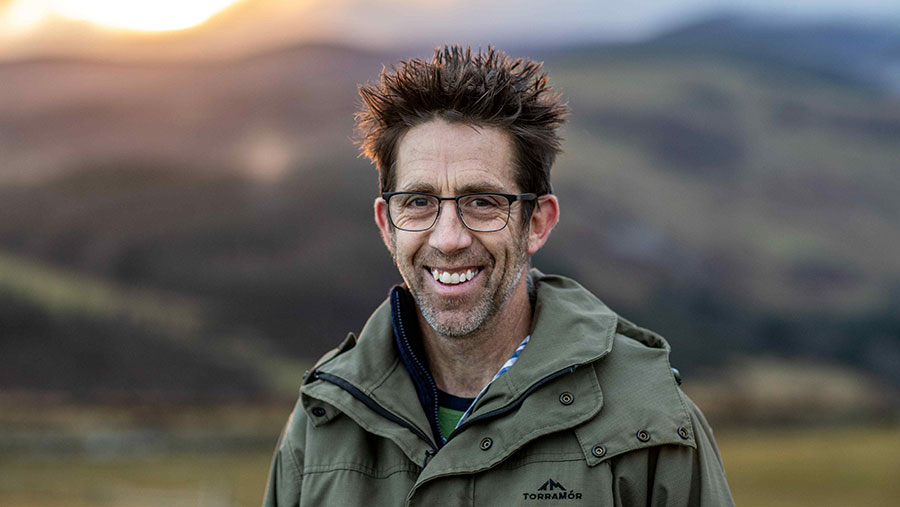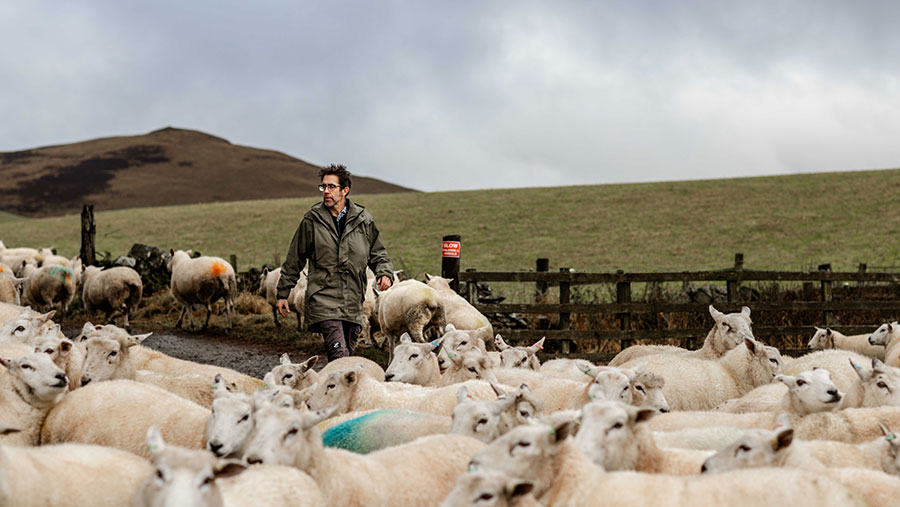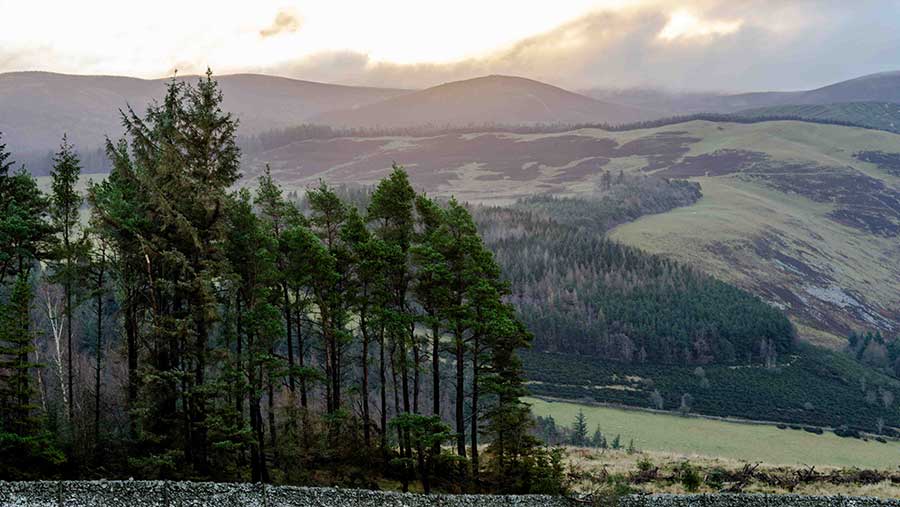Advertiser content
Nature-friendly farming: Making the numbers add up
Neidpath Farms is a large upland livestock enterprise spanning around 2,500 acres across four farms surrounding the town of Peebles in the Scottish Borders.
Since 2021, farm manager Matt Griffin has been leading a holistic, nature-friendly approach to agriculture.
Here, he shares the lessons he’s learned from keeping this agricultural transition profitable.
At Neidpath, the focus is on building a farming system that works with nature while remaining financially resilient.
Farm manager Matt, a member of the Nature Friendly Farming Network, has led the transition away from high-input methods towards a model that prioritises soil health, biodiversity and long-term business sustainability.

Matt Griffins © Joanne Coates
The moment it all clicked
Matt first began to question the dominant model of agricultural thinking when he studied holistic management with Allan Savory in New Zealand.
“It was about nature-friendly farming solutions and how ecosystems work together, not chasing bigger yields or using fertilisers and sprays,” he recalls.
As farm manager at Neidpath, Matt was able to put these ideas into practice.
The owners wanted to move away from what he calls a culture of endless “firefighting” towards a focus on soil health, biodiversity, water quality and nutrient cycling.

© Joanne Coates
How the transition was done
At Neidpath, the priority was cutting fertiliser use. By halving it each year, Matt eliminated it entirely within two years.
This was supported by a move to an AMP (Adaptive Multi-Paddock) grazing system that built in long rest periods for the grass, though it required significant upfront investment in fencing and water systems.
Fuel bills fell too, as outwintering in the new bale grazing system made setting bales out pre-winter more efficient.
Alongside these changes, several other steps helped reshape the system:
- Salers cattle were replaced with Angus, and six sheep breeds were reduced to Romneys and Romney crosses – a move from a high-input, high-output system to lower input levels and moderate yields with stronger genetics.
- Vets’ bills have remained steady, but the focus has shifted to prevention through rigorous blood tests and fecal egg counts rather than treatment.
- The medium-term goal is to reduce reliance on subsidies and create more opportunities – a milestone Matt believes is within reach.

© Joanne Coates
Matt’s top tips
- Reduce stock numbers by 10-20% during the first two years while set stocking is replaced with a mob or rotational grazing system. “We thought we could transition without lowering stock numbers and paid a price for it.”
- When transitioning animals to a new system, it’s important to monitor their condition carefully. “Changing the system could stress animals out.They might lose condition and you could end up selling them at a loss.”
- Prepare for up to three years of disrupted cash flow. “You’ll need to buy or retain more females to rebuild numbers and allow for culling animals that do not suit the new regime.”
- Invest in training. “It is absolutely vital to get off the farm to see what other successful systems look like and talk to people who are already farming this way. Maintaining mental health and a good work-life balance is so important.”
- Use the best infrastructure you can afford, even if this means having to do work in stages. “We used some cheaper fencing and water systems, and we’re already having to replace them with the expensive ones we should have bought in the first place.”
The transition in numbers (2021/22 to 2024/25) |
|
|
Concentrate animal feed |
↓ 75% |
|
Fertiliser |
↓ 100% (£40k to £0) |
|
Fuel |
↓ 40% |
|
Stocking level |
↑ 40% |
|
Cattle value |
↑ 500% (£120k to £600k) |

© Joanne Coates
Despite the progress already made, Matt is keen to emphasise that the transition at Neidpath is still ongoing.
“On paper, we’re coming towards the end of a five-year transition, but I wouldn’t say we are there yet.” Nevertheless, the farm is clearly on the right path.
Matt is a member of the Nature Friendly Farming Network (NFFN).
Provided by
The Nature Friendly Farming Network (NFFN) is a farmer-led organisation helping farmers restore the balance between farming and nature. Membership is free and open to all (farmers, the public, & organisations): nffn.org.uk/register
